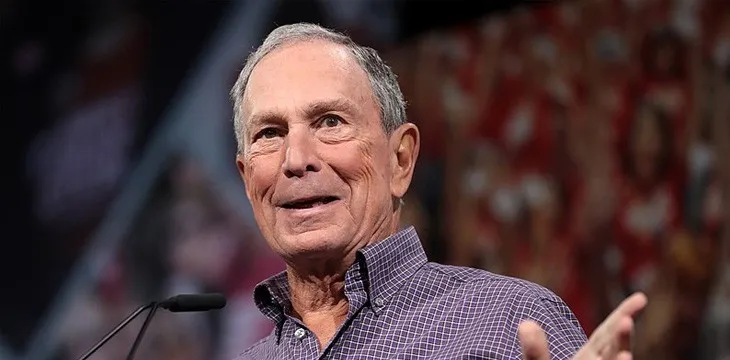|
Getting your Trinity Audio player ready...
|
After Andrew Yang dropped out of the Democratic Primary in early February, there were no clear cryptocurrency policies from any of the candidates. Just as he’s looking to swoop in and win the election late, former New York Mayor Michael Bloomberg is hoping to fill this gap too, providing a loose outline of what he’ll do for digital assets.
On February 18, Bloomberg published his financial reform plan on his campaign website. On the final, ninth page of the policy platform, he makes his thoughts clear on the current state of cryptocurrency regulation:
“Cryptocurrencies have become an asset class worth hundreds of billions of dollars, yet regulatory oversight remains fragmented and undeveloped,” it states. “For all the promise of the blockchain, Bitcoin and initial coin offerings, there’s also plenty of hype, fraud and criminal activity.”
To help firm up this regulatory oversight issue, Bloomberg offers five ways he hopes to address it. First, he wants to clarify who’s responsible for overseeing cryptocurrencies generally. Then, he wants to make a framework for initial coin offerings (ICOs), and define when they should be recognized as securities. He also wants to define capital and other requirements for financial institutions holding cryptocurrencies.
Otherwise, he also vaguely suggests he wants to clarify how cryptocurrencies should be taxed, but offers no specifics. And he also wants to protect consumers from cryptocurrency fraud, but doesn’t suggest how to do that.
This is the first promise of any cryptocurrency policy since Andrew Yang left the race after the New Hampshire primary. Yang previously had promised to better define terminology, clarify tax laws, and create a Department of Technology.
This also represents Bloomberg’s first serious attempt to address cryptocurrency regulation. In previous interviews on the topic, he’s generally dismissed them as serious investment or business prospects.
Other than these two, and a brief attempt by former candidate Eric Swalwell to accept donations from crypto investors, no other candidate has offered cryptocurrency policies. However, Donald Trump has offered new powers to the Secret Service to police digital assets, specifically in the area of terrorism fundraising.

 07-03-2025
07-03-2025 





